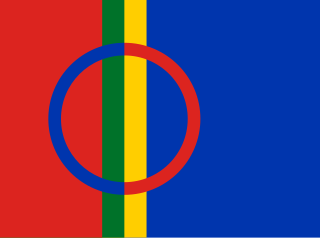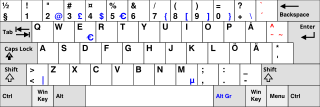
Finland, officially the Republic of Finland, is a Nordic country in Northern Europe. It borders Sweden to the northwest, Norway to the north, and Russia to the east, with the Gulf of Bothnia to the west and the Gulf of Finland to the south, opposite Estonia. Finland covers a total area of 338,145 square kilometres (130,559 sq mi), including a land area of 303,815 square kilometres (117,304 sq mi), and has a population of 5.6 million. Helsinki is the capital and largest city. The vast majority of the population are ethnic Finns. The official languages are Finnish and Swedish; 84.9 percent of the population speak the first as their mother tongue and 5.1 percent the latter. Finland's climate varies from humid continental in the south to boreal in the north. The land cover is predominantly boreal forest biome, with more than 180,000 recorded lakes.

Scandinavia is a subregion of Northern Europe, with strong historical, cultural, and linguistic ties between its constituent peoples. Scandinavia most commonly refers to Denmark, Norway, and Sweden. It can sometimes also refer to the Scandinavian Peninsula. In English usage, Scandinavia is sometimes used as a synonym for Nordic countries. Iceland and the Faroe Islands are sometimes included in Scandinavia for their ethnolinguistic relations with Sweden, Norway and Denmark. While Finland differs from other Nordic countries in this respect, some authors call it Scandinavian due to its economic and cultural similarities.

The Sámi are the traditionally Sámi-speaking Indigenous peoples inhabiting the region of Sápmi, which today encompasses large northern parts of Norway, Sweden, Finland, and of the Kola Peninsula in Russia. The region of Sápmi was formerly known as Lapland, and the Sámi have historically been known in English as Lapps or Laplanders, but these terms are regarded as offensive by the Sámi, who prefer their own endonym, e.g. Northern Sámi Sápmi. Their traditional languages are the Sámi languages, which are classified as a branch of the Uralic language family.

Sápmi is the cultural region traditionally inhabited by the Sámi people. Sápmi includes the northern parts of Fennoscandia, also known as the "Cap of the North".
Laestadianism, also known as Laestadian Lutheranism and Apostolic Lutheranism, is a pietistic Lutheran revival movement started in Sápmi in the middle of the 19th century. Named after Swedish Lutheran state church administrator and temperance movement leader Lars Levi Laestadius, it is the biggest pietistic revivalist movement in the Nordic countries. It has members mainly in Finland, Northern America, Norway, Russia, and Sweden. There are also smaller congregations in Africa, South America, and Central Europe. In addition Laestadian Lutherans have missionaries in 23 countries. The number of Laestadians worldwide is estimated to be between 144,000 and 219,000.

Kangasniemi is a municipality in the Southern Savonia region, Finland. The municipality has a population of 5,084 and covers an area of 1,326.75 square kilometres (512.26 sq mi) of which 256.86 km2 (99.17 sq mi) is water. The population density is 4.76 inhabitants per square kilometre (12.3/sq mi).
The music of Finland can be roughly divided into folk music, classical and contemporary art music, and contemporary popular music.
Nordic folk music includes a number of traditions of Nordic countries, especially Scandinavian. The Nordic countries are Iceland, Norway, Sweden, Denmark and Finland.

Lapland is the largest and northernmost region of Finland. The 21 municipalities in the region cooperate in a Regional Council. Lapland borders the Finnish region of North Ostrobothnia in the south. It also borders the Gulf of Bothnia, Norrbotten County in Sweden, Finnmark County and Troms County in Norway, and Murmansk Oblast and the Republic of Karelia in Russia. The topography of Lapland varies from vast mires and forests in the south to fells in the north. The Arctic Circle crosses Lapland, so polar phenomena such as the midnight sun and polar night can be viewed in this region.
A joik or yoik is a traditional form of song in Sámi music performed by the Sámi people of Sapmi in Northern Europe. A performer of joik is called a joikaaja, a joiker or jojkare. Originally, joik referred to only one of several Sami singing styles, but in English the word is often used to refer to all types of traditional Sami singing. As an art form, each joik is meant to reflect or evoke a person, animal, or place.

Inari Sámi is a Sámi language spoken by the Inari Sámi of Finland. It has approximately 400 speakers, the majority of whom are middle-aged or older and live in the municipality of Inari. According to the Sámi Parliament of Finland, 269 persons used Inari Sámi as their first language. It is the only Sámi language that is spoken exclusively in Finland. The language is classified as being seriously endangered, as few children learn it; however, more and more children are learning it in language nests. In 2018, Inari Sámi had about 400 speakers; due to revival efforts, the number had increased.

The culture of Finland combines indigenous heritage, as represented for example by the country's national languages Finnish and Swedish, and the sauna, with common Nordic and European cultural aspects. Because of its history and geographic location, Finland has been influenced by the adjacent areas, various Finnic and Baltic peoples as well as the former dominant powers of Sweden and Russia. Finnish culture is built upon the relatively ascetic environmental realities, traditional livelihoods, and heritage of egalitarianism and the traditionally widespread ideal of self-sufficiency.

Sami Tuomas Hyypiä is a Finnish professional football manager and a former player who played as a centre-back.

The two main official languages of Finland are Finnish and Swedish. There are also several official minority languages: three variants of Sami, as well as Romani, Finnish Sign Language, Finland-Swedish Sign Language and Karelian.

The Sámi languages, also rendered in English as Sami and Saami, are a group of Uralic languages spoken by the Indigenous Sámi peoples in Northern Europe. There are, depending on the nature and terms of division, ten or more Sami languages. Several spellings have been used for the Sámi languages, including Sámi, Sami, Saami, Saame, Sámic, Samic and Saamic, as well as the exonyms Lappish and Lappic. The last two, along with the term Lapp, are now often considered pejorative.
Tanssii tähtien kanssa is a Finnish version of the British reality TV competition Strictly Come Dancing and is part of the Dancing with the Stars franchise. The show has run on MTV3 since 3 March 2006, on Sunday evenings. The twelfth season was aired in the autumn 2019.

Sami Henrik Hedberg is a Finnish stand up comedian and actor. Hedberg became famous after winning the Get up, stand up competition on Sub TV in 2005. This victory caused him to become one of the most popular stand up comedians in Finland. Hedberg has his own company, The Showhouse OY, founded in 2005.
Hercules is a gay bar and nightclub in Helsinki, Finland. Operating since 2000, it is the third establishment opened by Moek Trading Oy. The venue caters primarily to gay men over 30, and its live entertainment features drag queens and strippers. The bar was located in Helsinki's Kamppi neighborhood until the end of 2015, when a hotel took over its space. It subsequently reopened at an address in Etu-Töölö, where it endured a number of events that caused financial strain. That location closed in December 2020, when the building was sold to new owners. The club then reopened across the street from Helsinki's central railway station in October 2021. Critics generally describe Hercules as popular, edgy and welcoming.










